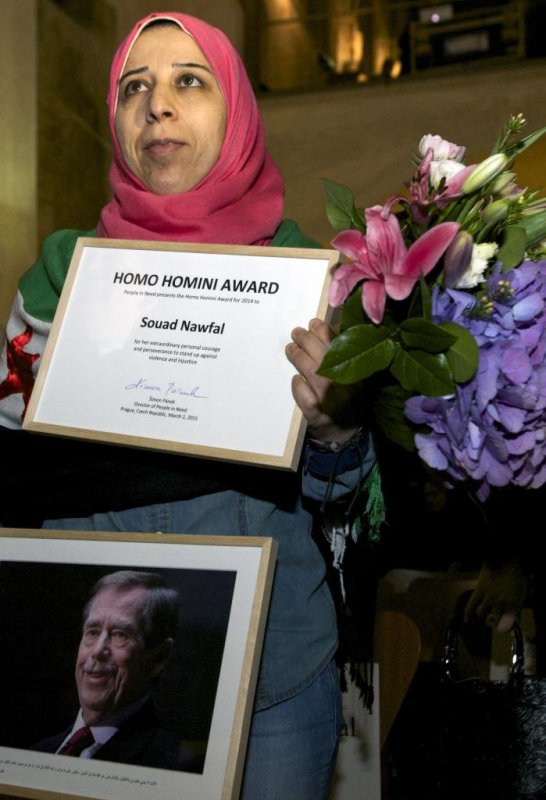'Last week the Syrian regime bombed Al-Kamouna camp for internally displaced people on the outskirts of Idlib. Moscow and Damascus both resorted immediately to deception in order to ward off any accusations of responsibility for this criminal act. They accused Al-Nusra Front of killing those displaced in a camp which is in an area under the group’s control. Washington also participated in the deception, with the secretary of state saying no more than “nothing justifies attacks on civilians.”
What is the result of this lack of responsibility demonstrated by Russia and the US? The alarming answer to this question is the legitimisation of genocide. With the escalation of the conflict and the heated search for an end to a crisis that has become more complicated both internally and externally, the regime believes that it has a solution supported by its Iranian and Russian allies – genocide — elements of which it has adopted periodically since 2011 in a repeat of the 1982 Hama massacre that the US also chose to overlook.
An example of this genocidal mentality and its justification can be seen in the heinous acts committed by the Kurds from Afrin on the bodies of those they’ve killed. It was one of the ugliest incidents of the war, but it happened and passed without anyone addressing it, as if it was something normal.
A study conducted by the United Nations Economic and Social Commission for West Asia (UNESCWA) and Britain’s University of St Andrews, is shocking: “Millions are deprived of the essential necessities of life: 13.5 million are in need of human assistance and 12.1 million lack adequate access to water, sanitation and waste disposal, over 4 million of whom live in Damascus, its suburbs, and Aleppo.” These are areas that the regime intends finish off in order to achieve what Assad called “the final victory” in a telegram thanking Vladimir Putin.
What was revealed in Aleppo and then in the bombing of the Kamuna camp was not only the approach of genocide or the difficulty in reaching a comprehensive truce, but also the US-Russian efforts to cover up the false “political solution” that actually aims to subordinate the Syrian conflict to the war criminal Assad and his gang of killers. Perhaps this approach to the logic of genocide is what pushed the French, the British and the Germans to sound the alarm bells, which is what the Arabs and Turks did before them. They support the American action and understand much of its aspects, despite its vagueness and confusion. However, they reject the idea of the Americans following the Russian-Iranian approach and justifying and overlooking Assad’s crimes.
What was revealed in Aleppo and then in the bombing of the Kamuna camp was not only the approach of genocide or the difficulty in reaching a comprehensive truce, but also the US-Russian efforts to cover up the false “political solution” that actually aims to subordinate the Syrian conflict to the war criminal Assad and his gang of killers. Perhaps this approach to the logic of genocide is what pushed the French, the British and the Germans to sound the alarm bells, which is what the Arabs and Turks did before them. They support the American action and understand much of its aspects, despite its vagueness and confusion. However, they reject the idea of the Americans following the Russian-Iranian approach and justifying and overlooking Assad’s crimes.
The Europeans believe that there is a vast difference between using the US-Russian understanding to urge Assad and the opposition to come to a political understanding that requires commitments and concessions, and using this understanding to please the Iranians and encourage the Syrian president to carry out a military takeover and protect him from any accountability or responsibility. What is more important is that the Europeans who wanted to alleviate or ease the waves of refugees and therefore accepted a political solution, albeit one that is unfair to the opposition, realised that the Americans and Russians lied in terms of the truce being upheld or the feasibility of the proposed political process.
What is happening now is that the difficulty in establishing a truce and ensuring that it is respected and upheld by the regime and the Iranians has made it difficult to get the opposition to return to the Geneva talks, because the game that is being played with people’s lives has been exposed. Now the regime does not even want the unfair settlement, as it wants to break the truce deliberately in order to hinder negotiations. This is what drove the Europeans to call for a new initiative, as the formulation stemming from the Vienna talks, that later became UN Resolution 2254 has been ruined — and destroyed — by the Russians, Assad and the Iranians.'



